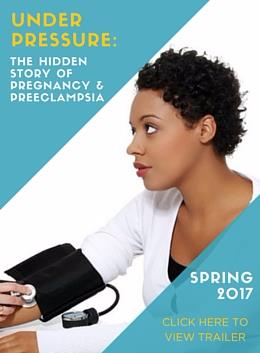A summer car trip can be a great vacation while pregnant, especially if flying is out, but there are some precautions to take before you hit the road for a babymoon.
By: Devan McGuiness
Everyone loves a good summer road trip. And if you’re pregnant, a baby moon by car can be exactly what you need before you’re elbow-deep in dirty diapers and so sleep deprived you forget your name – especially if your doctor has put the kibosh on air travel. But this vacation is going to be a little different from that care free road trip you took in college. To make sure the only bump on the road is your belly, here are 6 things you need to know before you set off.
1. Talk to your health provider
“With any mode of travel, the first thing a pregnant woman should do is to contact her health provider,” advises Kecia Gaither, MD, maternal fetal medicine specialist and director of perinatal outreach at Montefiore Medical Center in the Bronx, N.Y. “Certain medical conditions may preclude any degree of travel be it by air or land—those conditions may include placenta previa, prior preterm labor, or clotting disorders,” she adds.
2. Try to plan for your second trimester
“The best time for travel in a car is within the middle of the pregnancy – between 14 and 28 weeks,” Gaither recommends. Not only is the middle of the pregnancy when you’re likely going to be feeling the best, but it also carries a lower risk of any complications.
3. Drink your water
There is a huge link between dehydration and uterine contractions, which makes keeping on top of your water intake crucial, Gaither says. Keep a water bottle filled with cool water readily available in the car and drink more if you’ve been sweating or exercising.
4. Take extra meds or supplements
While you’ll want to double check you’ve packed any medications and vitamins you need to make sure you’re on top of your health while vacationing, it’s also important to bring extra doses, in case you’re on the road longer than originally anticipated, Gaither says.
5. Always wear your seat belt
You may have heard the myth that pregnant women shouldn’t wear their seat belt for fears of it causing harm to their unborn child, but that can’t be further from the truth. According to the National Highway Traffic Safety Administration, every pregnant woman should be wearing their seat belt at all stages of pregnancy, and it’s advised to leave any airbags turned on. If you’re worried about the impact from an airbag when driving, move your seat back as far as possible from the steering wheel.
6. Get out and stretch often
Gaither says that women should plan to stop “at least every two hours” to get the blood flowing back into the lower half of the body to help avoid complications like deep vein thrombosis, which pregnant women are at a higher riskof developing.
Lastly, you’ll want to have a plan in place for any unexpected health concerns, which can happen quickly during pregnancy. If any problems do arise during your summer road trip, Gaither recommends you contact your health provider and the nearest hospital for advice and treatment.






